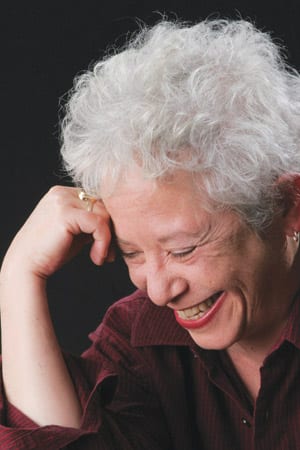’70s pop icon Janis Ian is proud to have grown with the times

THE?OTHER?JANIS | From her Grammy-winning hit ‘At Seventeen’ to parrying with Howard Stern, Janis Ian has maintained a scrappy individuality from early fame to grande dame status.
…………………
JANIS IAN
Winspear Opera House/Hamon Hall, 2403 Flora St. Dec. 8 at 7 p.m. $49. ATTPAC.org.
………………..
There’s perhaps no other better way to note how the world has changed than talking to iconic singer-songwriter Janis Ian right after Election Day. We spoke over the phone on Nov. 7, less than 24 hours after the first African-American president, Barack Obama, was elected to a second term.
“It’s a great day!” Ian says early in the conversation.
The event serves, perhaps, as a fitting bookend to Ian’s story, which started when she was 13, penning the song “Society’s Child (Baby I’ve Been Thinking)” about an inter-racial relationship. That song was released in 1967, and when Ian performed it she was often booed off stage, pelted with verbal abuse and epithets such as “n*gger-lover.”
So yes, some things have changed — to some extent at least. Her audience will no doubt be much friendlier when she performs in Hamon Hall at the Winspear Opera House Saturday.
“I’m happily surprised,” Ian says. “I didn’t think Obama would get as much of the popular vote that he did. We’re a young country and people forget that. The fact that we grew up enough to elect a black man is great.”
Growing up has been a theme in much of Ian’s work. She’s best known for her 1975 Grammy-winner “At Seventeen,” a deeply personal, melancholy vocal account of what it’s like to grow up ostracized for not fitting into societal norms of what’s attractive. When I note that, upon looking back at her old album covers and promo photos, Ian actually looks pretty darn cool, she laughs.
“Well, I don’t know about that,” she says. “I do know that you get older and you realize that that’s not what people love or hate about you.”
Ian’s feelings about her own appearance during her adolescence are well documented. She was brown-eyed and curly-haired, her skin was bad, and she was short, while the popular girls were tall, blonde and smooth-faced. It’s tough enough to live in that dichotomy, but, as a lesbian at a time when lesbians didn’t come out, Ian’s outsider status was even more complex.
Ian didn’t come out publicly until 1993, when she released her comeback album, Breaking Silence (the title track actually was about incest, not being in the closet). “I was out to the music industry, out to everyone I knew,” she says, “but the suicide rates of gay teens were so high, that’s what convinced me to come out very publicly.”
For Ian, 1993 wasn’t just about coming out. Although her body of work is some of the best American songwriting ever produced, Ian had been stigmatized as a one-hit wonder. Breaking Silence was a way for her to make a point.
“I was coming back with a lot to prove, to prove that I could still write good songs, that you don’t have to have a hit single to be successful, that I didn’t have to look a certain way. People like Ani DiFranco were out there doing those things, but not when I started,” she says.
It’s here that Ian’s career took a surprising side route, as she began to appear on Howard Stern’s radio show. They were an odd match, but, weirdly, maintained a rapport and comic chemistry. “It was cool in the sense of, how many times do you get to sit in the boys locker room,” Ian laughs, “but, you know….” She laughs again and switches gears. “Despite all the lesbian jokes he made, Howard still tried to be respectful.”
That’s the thing about Janis Ian: Her scrappiness has never ceased, nor has her commitment to vocalizing her opposition to what’s unjust in the world. But along the way she’s made some unexpected, and sometimes contradictory, bedfellows. She’s been known as one of the first artists to embrace the potential of the Internet, yet her relationship with the medium remains tricky.
“The Internet has changed a lot, because a lot of people have access to so much, and it’s leveled the playing field, “ she says. “But a lot of it has leveled the playing field to the point that a lot of really awful stuff gets heard.”
And yet, getting heard is still what it’s all about. So many years after “Society’s Child” and “At Seventeen,” you get the feeling that Ian might finally have found a space in which to reconcile her own artistry with that difficult demographic of “the beautiful people.”
“I’d still much rather have Celine Dion sing ‘At Seventeen,’” she notes wryly. “Then a lot more people would hear it.”
— Jonanna Widner
This article appeared in the Dallas Voice print edition December 7, 2012.

